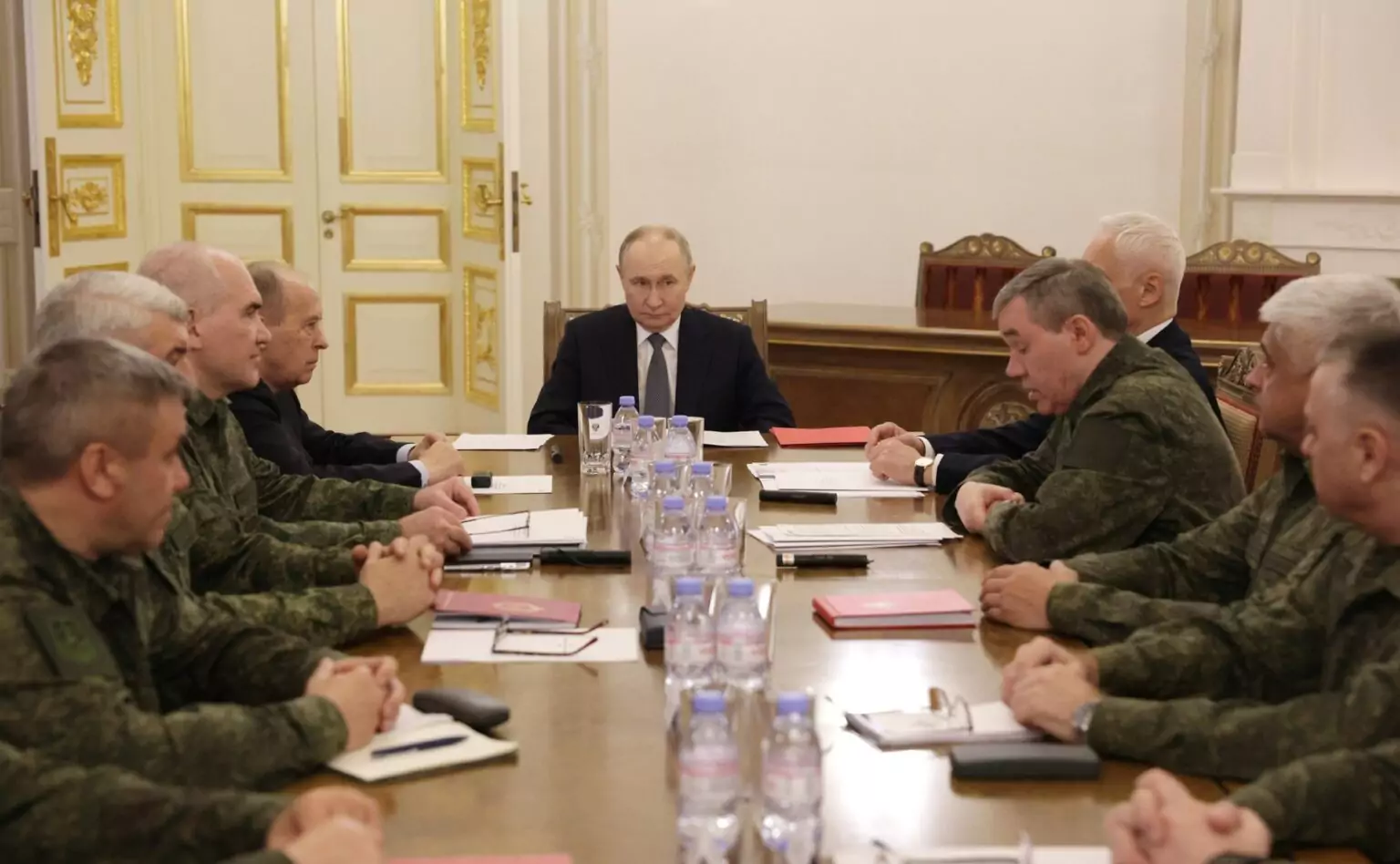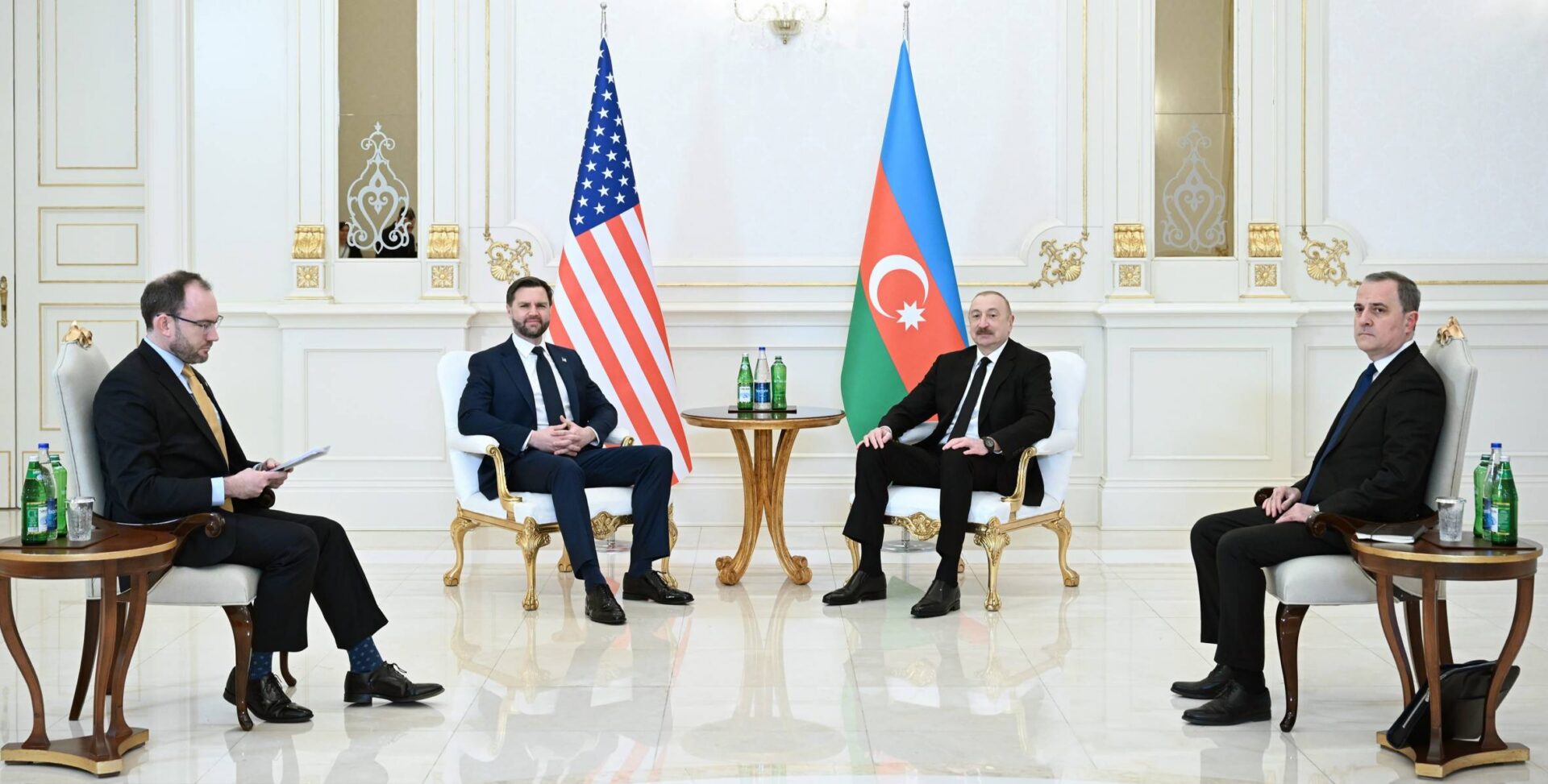
Russia Ignores Global Peace Developments to Focus on Putin’s War
Executive Summary:
- Moscow’s muted response to the October 10 announcement of Venezuelan opposition leader Maria Corina Machado’s Nobel Peace Prize win and the ceasefire in Gaza underline how Russia’s war against Ukraine has come to dominate the Kremlin’s attention.
- Recent independent polling by the Levada Center shows a desire for a conclusion to the war against Ukraine among the Russian public. Russian President Vladimir Putin, however, has shown no flexibility in curtailing his maximalist aims.
- U.S. President Donald Trump and Ukrainian President Volodymyr Zelenskyy recently discussed the potential supply of Tomahawk missiles to Ukraine, which Moscow fears could force it to compromise on its war aims.
Extraordinary international attention was focused on the Nobel Peace Prize announcement on October 10. Anxiety was palpable in Moscow, where official skepticism had dominated since the award of the 2022 prize to the Memorial Society—a Russian human rights organization that was branded as a “foreign agent” and forced to operate outside the country. Mainstream Russian commentators were eager to speculate about the potential awarding of the prize to U.S. President Donald Trump (Izvestiya, October 8; Kommersant, October 9). Russian President Vladimir Putin, while asserting that the Nobel Prize had lost its reputation, however, expressed the opinion that Trump deserved it, which earned him a word of gratitude from the U.S. president (RBC, October 10).
The official announcement that the Nobel Prize was awarded to Maria Corina Machado, a leader of the Venezuelan opposition, was met in Moscow with indifference. Venezuelan President Nicolas Maduro may be Russia’s strategic partner, but his support for the Kremlin’s war against Ukraine is worth very little (Rossiiskaya Gazeta, October 3). Similarly, the breakthrough in stopping the war in Gaza is receiving only superficial coverage in the Russian media (Izvestiya, October 10). Moscow has discontinued its attempts to form ties with the Hamas leadership, and after the fall of its key regional ally, the Bashar al-Assad regime in Syria, Russia’s interest in the Middle East has somewhat dissipated (see EDM, February 6, June 16, October 6; Forbes.ru, October 9).
The Kremlin’s war against Ukraine continues to dominate political and public attention in Russia. Independent opinion polls show a steady increase in support for its conclusion, particularly among the younger generations. For example, as many as 80 percent of respondents express readiness to support a hypothetical decision to stop hostilities within a week, according to a recent Levada Center poll (Levada Center, October 7). Russia’s commander-in-chief, however, demonstrates a resolve to stay the course of the war and shows no flexibility in curtailing his maximalist aims, despite deepening discontent and mounting economic costs (see EDM, May 8, September 26; The Moscow Times, October 10). On October 7, Putin celebrated his 73rd birthday by holding a meeting with the top brass and instructing them to continue attacks on Ukraine that his military leaders have been reporting as exclusively successful (RIA Novosti, October 7). In reality, Russia’s modest tactical gains achieved in August and September have stalled in October, as Ukrainian forces have regained territory in the Sumy oblast and executed several counterattacks in the Donbas region (The Insider, October 10). Even jingoist Russian commentators have expressed reservations about heavy losses and high costs of Moscow’s long war against Ukraine. In the Russian public, worries about a new wave of mobilization are growing (Levada Center, October 9; Topwar.ru, October 10).
Russia’s only measurable change in its conduct of the war is the increased intensity of combined drone and missile attacks on a wide range of civilian targets in Ukraine (The New Voice of Ukraine, October 10). Ukrainian gas infrastructure that the Kremlin previously spared in air campaigns because Russian gas transit to Europe through Ukraine continued is now the priority target (Novaya Gazeta Europe, October 8). Ukraine, nevertheless, is able to respond in kind by using drones to strike refineries as far away as Ufa, Bashkortostan, and oil depots in Feodosiya, Crimea, which continued to burn for five days last week (Krim Realii, October 10;Meduza, October 11). Repairs to the damaged refineries are complicated due to the sanctions regime, so the only way for Russia to alleviate the fuel shortage is to halt exports and resort to importing diesel from Belarus and the People’s Republic of China (Carnegie Politika, October 2; Re: Russia, October 8).
Refineries make a fixed and large target, but to reach them, Ukrainian drones must overcome Russian air defenses, and for that, updated U.S. intelligence information is invaluable (Izvestiya, October 12). The supply of U.S. BGM-109 Tomahawk missiles, which Trump and Ukrainian President Volodymyr Zelenskyy discussed during phone calls on October 11 and 12, could significantly enhance the impact of Ukrainian strikes (Meduza, October 12). In combination with swarms of drones, even a few Tomahawk missiles can inflict devastating damage to Russian energy infrastructure and air bases (Radio Svoboda, October 11).
The prospect of this escalation worries Moscow so much that patriotic pundits have resumed invectives against Trump and started again to argue for a tactical nuclear strike (Topwar.ru, October 9). On October 8, Russian Deputy Foreign Minister Sergei Ryabkov announced that the momentum for a peace deal in Ukraine had been exhausted. The Kremlin rushed to disprove him, however, and Putin’s aide, Yuri Ushakov, asserted the next day that the agreements allegedly reached at the Alaska summit continued to work (RIA Novosti, October 8; RIAC, October 10). Putin opted to confirm that the “spirit of Anchorage” was still going strong and added many warm words for Trump (Argumenty i fakty, October 10). Putin was, however, apparently disappointed with Trump’s lukewarm response to his initiative to maintain the ceilings on strategic armaments set by the New START Treaty (due to expire in February 2026) and pre-announced a forthcoming test of a new strategic weapons system (Kommersant, October 7; TASS, October 10).
Putin’s confidence in the usefulness of his war against Ukraine for prolonging his autocratic regime is not as firm as he tries to project, and the expanding purges of the bureaucratic elite are just one sign of his concerns (Carnegie Politika, October 9). New sanctions and tariffs cannot erode his desire to subjugate Ukraine, but a new surge in Western support for Ukrainian resilience could compel him to compromise. In Putin’s mind, the U.S. president is the only leader of authority to strike a deal with. Trump has economic and military leverage in negotiations to end Russia’s war, a process coordinated with Zelenskyy, but the point “I need ammunition, not a ride,” which Zelenskyy uttered after the U.S. offered to evacuate him after Russia began its full-scale invasion, still stands.


